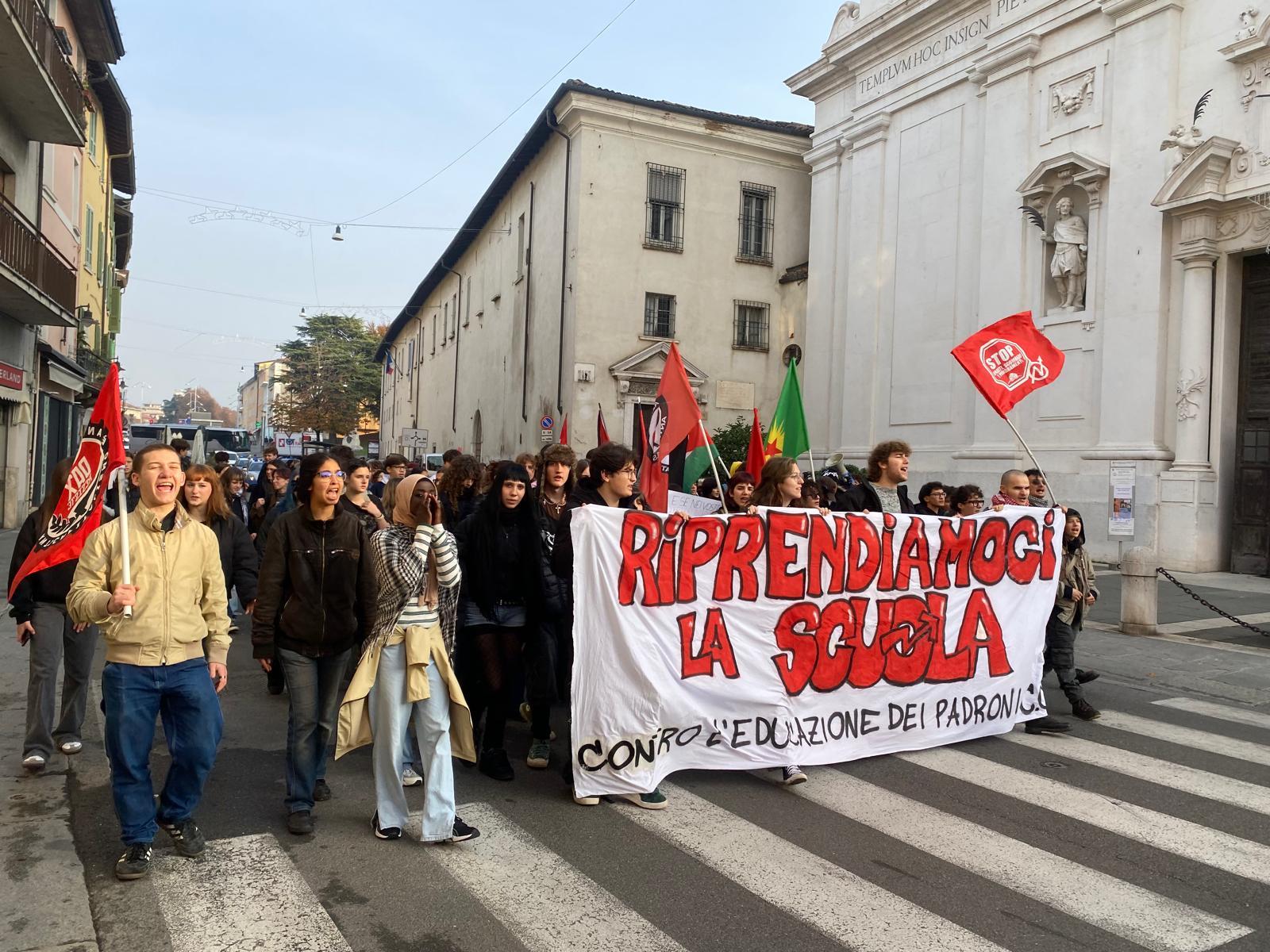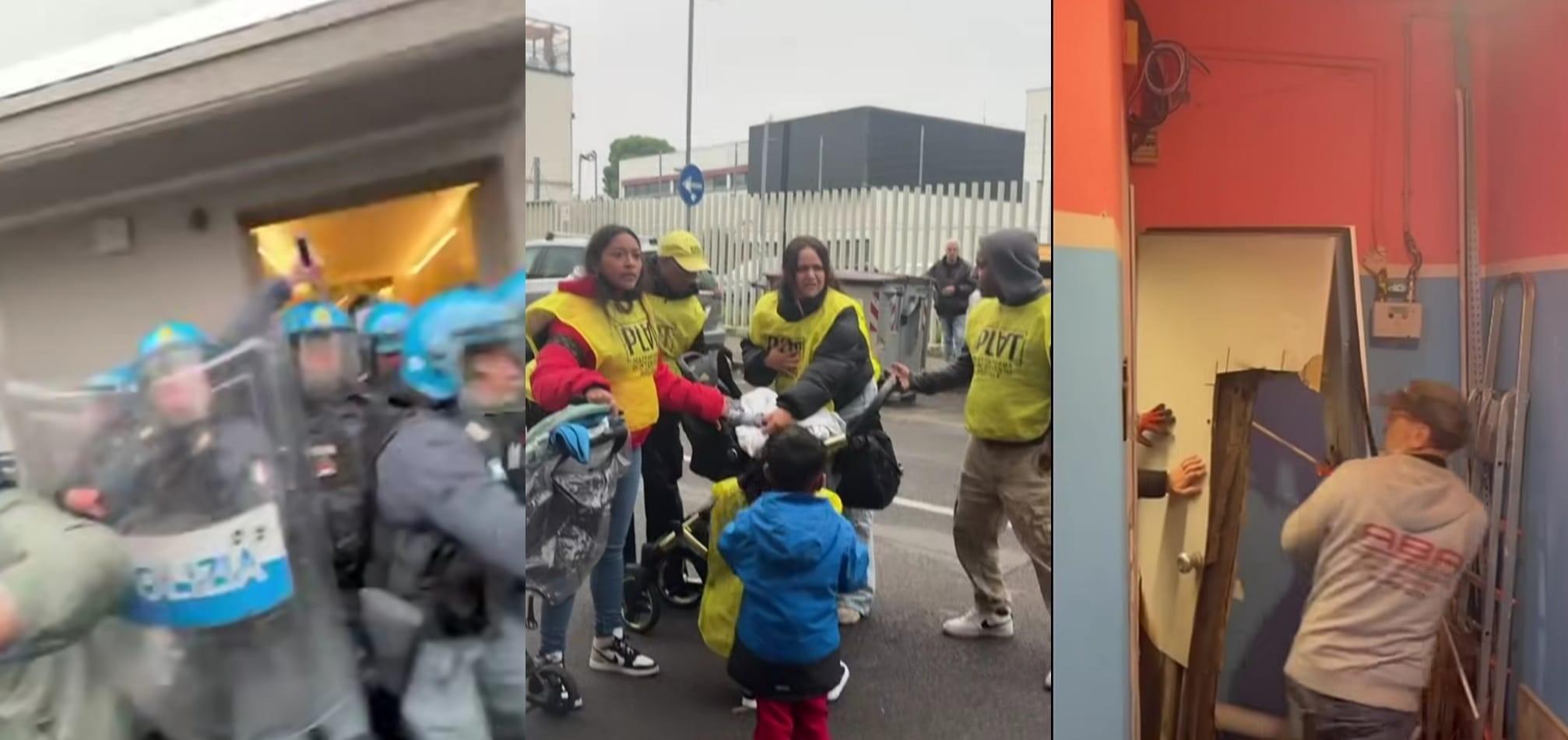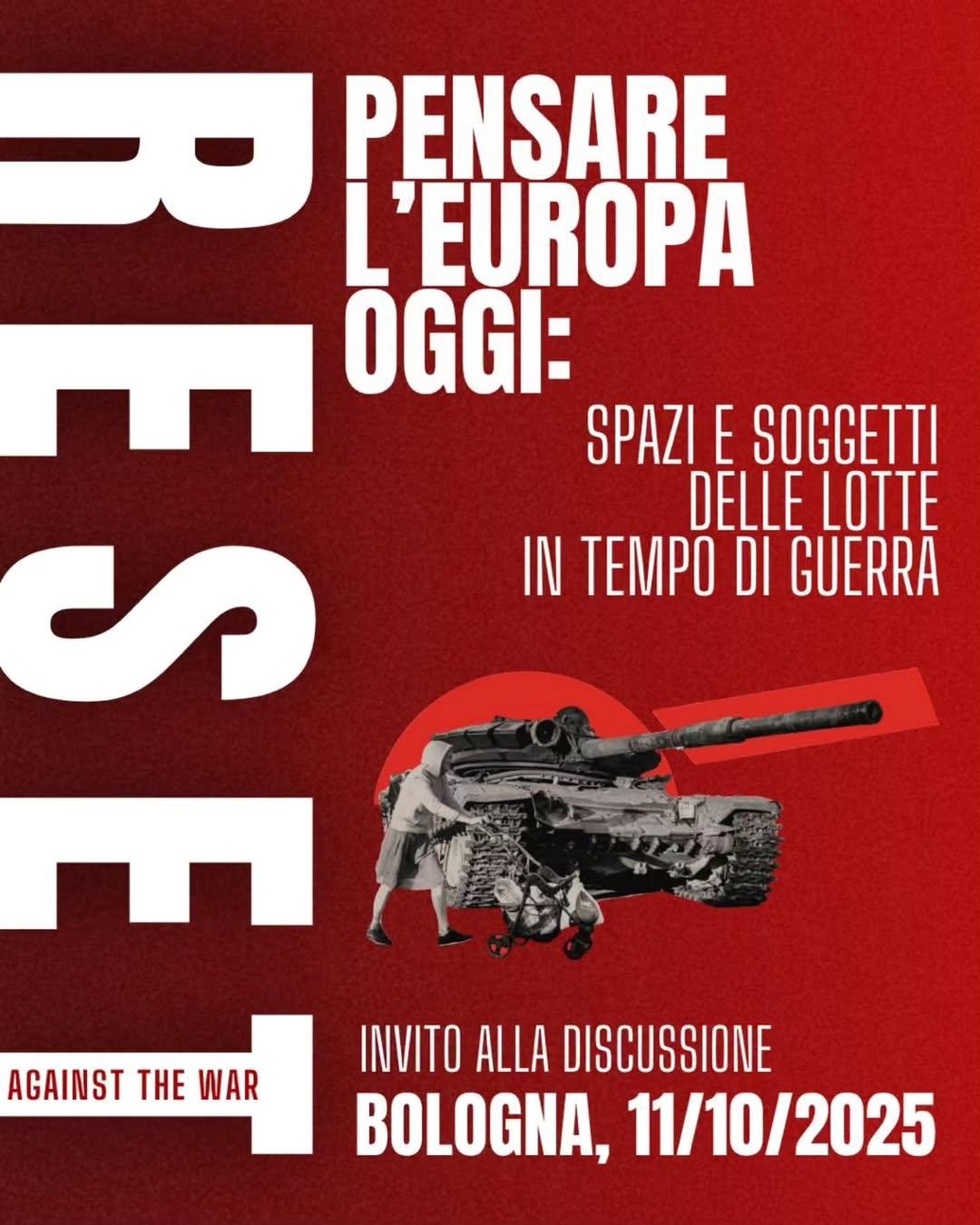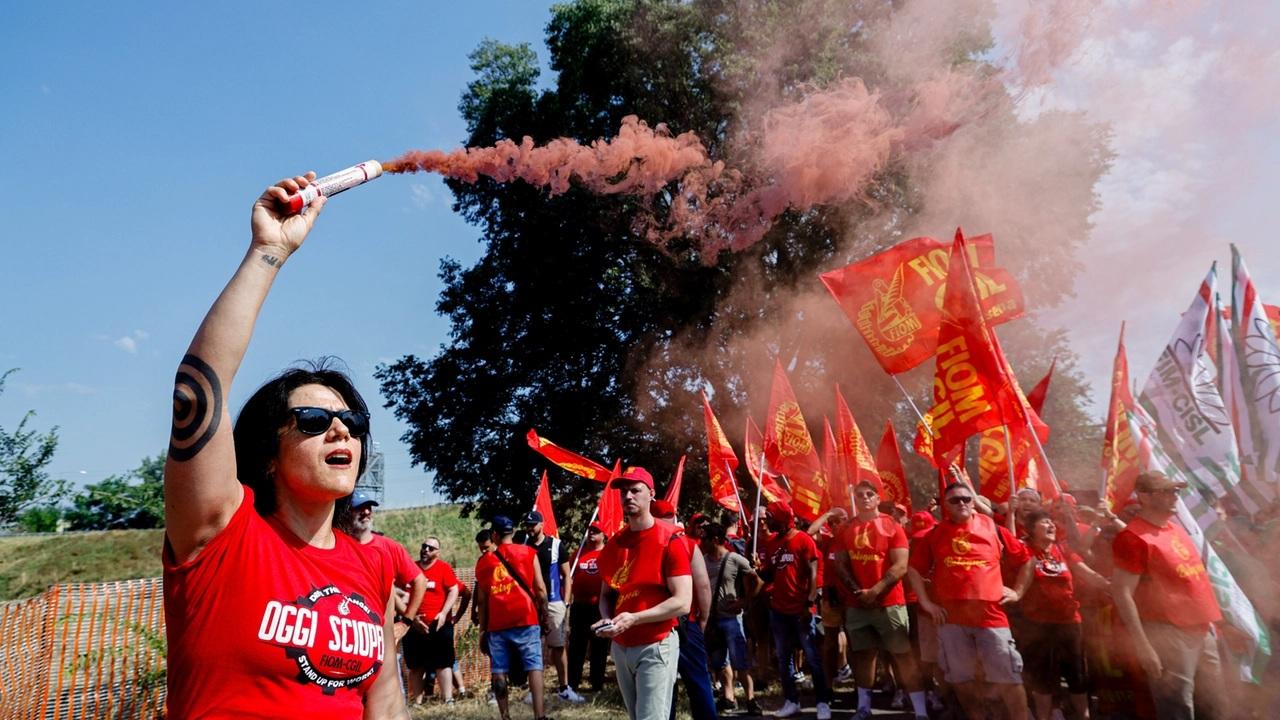
To fight against the New ISEE in Emilia-Romagna and in Bologna

The reform of the ISEE (Indicatore della Situazione Economica Equivalente) economic indicator, that after having been in existence for 17 years is headed towards a definitive change, does not prefigure anything good. The declared goal of the reform is the simplification of the fulfillments by some taxpayers categories, the reduction of tax-related errors and controls and the improvement of social equity; but actually, already at a first and uncomplete look, it can be clearly inferred that the change seems to be headed towards the attainment of some other, very different, results. To drastically decrease the social base of those enjoying the ISEE in order to access subsidised performances and services, that is. The reference to the principle of equity by which the reform states to be inspired from is actually denied; while a near future made of rise of widespread poverty and exclusion from social services for whoever, striken by the crisis, is in a state of need is quite real.
The right to access social services such as nurseries, social caregiver help, school food services, social housing, rent subsidies (contributi affitto) risk to be seriously jeopardized.
For us there is nothing new under the sun, the class struggle from above deploys its effects on the most weak social categories, loyal to the rationale of charging the poors with the outcomes of crisis and austerity, in a complete indifference to the production of ever greater impoverishment, misery and social malaise.
The coming into effect of the new regulations, from January 1st 2015, immediately produced some unpleasant surprises when, as the expiration of a series of services at the end of the month was approaching, the reduction of university fees and school enrollment caused a short circuit of the subsidised services. In fact the old ISEE, replaced by the unified sworn affidavit (Dichiarazione Sostitutiva Unica – DSU) or mini-ISEE, can be significantly higher considering an equivalent income, with a range that goes from 8% to 30% up. This implies that, if no amendment is applied by local bodies and city councils to the thresholds of access to subsidised services, the amount of people able to benefit from these very subsidies will be dramatically reduced!
On top of that, there was no renewal of the agreement between INPS (Istituto Nazionale Previdenza Sociale – the istitutional body for social security) and the CAFs (Centri di Assistenza Fiscale): the centers of fiscal assistance, without the settlement of an agreement on the tariffs to be applied to the service, are not able to support and help the taxpayers in the compilation of the new DSU – generating chaos and errors in the difficult compilation process.
If one tries to do it himself through the INPS website, he has to cope with a mass of problems, while the INPS offices lack staff trained on the new indicators of economic evaluation, in particular those linked to the average equity indicator (Indicatore di Giacenza Media) and to the bank account balance. All of this, together with the slowness of the online access system, shows how the reformist spirit driven by goals of simplification and improved efficiency of public administration determined the opposite effect: uncertainty, chaos and unfairness.
The tricks for strangling the most poor
Examining in detail the single regulations contained in the reform decree of the old ISEE, one can infer the clear intention of raising the income parameters with the goal to reduce (the appraisal estimates up to 20%!) the total beneficiaries of income-related services and performances.
It has to be emphasized as, always with the professed goal of simplification, the ISEE evolved from being a unified declaration to a diversification and multiplications of declarations related to the services to be requested: featuring an ISEE for underage-related services, an ISEE for social health services, an ISEE for public residential housing and a current ISEE.
Let’s get on now to the new regulations that define the composition of the family unit: it changes from having the registry unit (nucleo anagrafico – the actual family status, that is) as a reference, to the creation of downright presumptions of conhabitation and economical support. These news will entail, for unmarried parents, a kind of automatic attraction within the family unit of the natural recognized son, unless it can be proven to have children with another spouse, or that official proof of actual abandonment or separation can be provided by social workers or by the judicial authority.
The reticence by the State to recognize common-law marriage is joined by the hypocrisy of the government that recognizes it for tax purposes only – by drawing, even forcibly, an individual into a family unit, with the only goal of raising the ISEE parameter.
Not to mention the impossibility for the youth to create their own family unit: the adult son, whichever his personal condition or age is, will never have the chance of having his own ISEE until he owns an apt income for his livelihood or has any children, and thus he will be forcibly drawed into his parents’ family unit.
Another trick used in order to reduce the ranks of whoever enjoys subsidised services was obtained by the obligation to insert, in the part of the DSU pertaining income, also the income excluded from tax credit (scholarships, grants for PhD, social security checks, disability pensions, accompaniment indemnity). In a few words, that means that, from this year on, a family with two sons which were awarded a grant is bound to insert their amount in the DSU; and consequently, in the next year, its ISEE will become too high to access again the same grant application, or even worse, that family will have to choose between accepting the grant or enjoy free dental care or access the assignment of Public Regional Housing (Edilizia Regionale Pubblica – ERP).
When one finally comes to deductions, the class mark imprinted on the reform becomes blatant: the allowances provided for personal property made up by sums of money or assets, financial products and state bonds are equal to 6000 euros, plus 2000 more euros for each component of the family unit besides the first one; on the other hand, the deductions of the rent fee amount to 7000 euros, increased by only 500 euros for each child following the second one.
As we are certain that enormous masses of proletarians apply deductions to their ISEE because they own money in bank accounts and shares quoted in the stock exchanges, we notice with glee the possibility of deducting greater sums for personal property, at the expense of the possibility of deducting sums for the rent fee!
After all, if we were not in front of a downright theft of collective wealth intended for the most poor, the government of thieves of this country would not have been so eager to affix thousands of posters in every city, celebrating the virtues of this sad and ruthless reform!
An early analysis of the new ISEE assessment in Emilia-Romagna and in Bologna
In our region the biggest problems will be experienced in regards to the main services connected to ISEE requests: nursery schools, school food services, home health services, relief from local taxes and public transport, grants for rent expenses, access and grants for the rent of public residential houses.
In particular, in regards to the social fund for rent, two benefit tiers are provided for nowadays: the first one reduces the weight of the fee on income of 14% up to a maximum of 3.100 euros, when the applicant has an ISEE which does not exceed 11.110 euros; the second one reduces the weight to 24% with a maximum grant of 2.325 euros with an ISEE not higher than 15.000 euros. With the reform that raises the ISEE from 8% to 30%, many families which previously enjoyed the subsidy will find this year to be excluded from it, though earning the same income.
Let’s get done with the analysis of the situation regarding public residential housing: the regional rules envisage three areas to fit the recipient family units in: area of access, of permanence and loss. The requirements for the access entail an ISEE not higher than 15.000 euros. For the most protected categories the rent fee can prescind from the commercial value of the assigned residence, but only when enjoying an ISEE not higher than 7.500 euros, otherwise one falls into the intermediate category, that envisages an higher rent in comparison with the first one, yet lower than the market value of the assigned residence. Beyond the 30.000 euros treshold, on the other hand, all benefits are envisaged to be lost; and in this case the rent will be assessed accordingly to the commercial value of the property. The social housing sector is the one where the most deep contradictions are produced: if, on one hand, the possibility to access the application to gain a council-owned lodging for anyone having a 0 euros-ISEE is not provided for, on the other hand there is an attempt to exclude from the beneficiaries’ category even whoever enjoys a middle-low income, that with the new legislation will be transformed into a middle-high one.
This reform reveals itself to be a new and evident attack against the most weak, that in a period of crisis and general impoverishment will aggravate the already tragic consequences of the irresponsible cuts to the public budget, influencing the already insufficient resources allocated for welfare.
Complying with the dominant orthodoxy the Renzi government gives us, with this reform, a country fully integrated within a continent devastated by the crisis, that cannot even manage anymore to conceal the social bloodbath imposed by the blueprints and choices of the Troika.
The challenge ahead us lies in the ability to recognize the weak points of the ISEE chain in our territories and to produce autonomous self-organization and class action in order to increase our social cost. To build a kind of social impact against the new ISEE assessment, starting from the struggle for housing rights, it seems to us a need we cannot back out from! To live up to the challenge, we must increase the strenght of our claims, and pursue the practice of social antagonism and concrete alternative: reappropriations, small-scale autonomous class actions, mutualism and solidarity are our project aimed to oppose that continuous expropriation of collective wealth that in Italy, in 2015, is also called New ISEE Assessment. Let’s start to square things up!
Committee of Resisting Tenants with Social Log (Comitato Inquilini Resistenti con Social Log)
Ti è piaciuto questo articolo? Infoaut è un network indipendente che si basa sul lavoro volontario e militante di molte persone. Puoi darci una mano diffondendo i nostri articoli, approfondimenti e reportage ad un pubblico il più vasto possibile e supportarci iscrivendoti al nostro canale telegram, o seguendo le nostre pagine social di facebook, instagram e youtube.




















